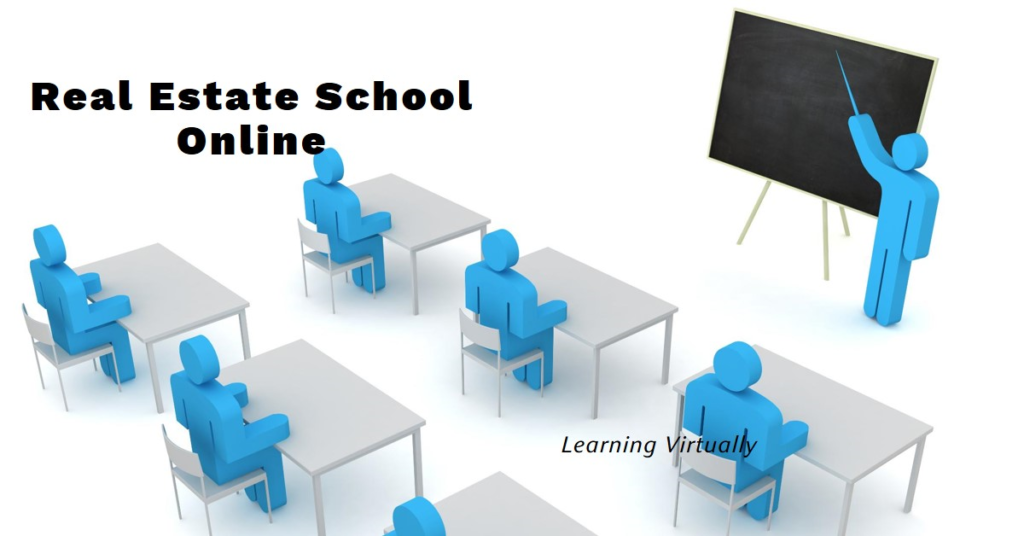
Table of Contents
- Introduction to Virtual Real Estate Education
- The Advantages of Online Real Estate Schools
- The Structure of Online Real Estate Programs
- Technological Tools for Online Learning
- Overcoming Challenges in Online Real Estate Education
- The Future of Real Estate Education
- Testimonials and Success Stories
- Conclusion: Is Online Real Estate School Right for You?
Introduction to Virtual Real Estate Education
The landscape of education is evolving rapidly, with more fields than ever embracing online learning. Real estate is no exception. The traditional classroom model is being supplemented, and in some cases replaced, by online real estate schools. This shift not only aligns with the broader digital transformation but also meets the needs of modern students who require flexibility and accessibility.
In this comprehensive blog post, we will explore the world of online real estate education. From the advantages and challenges to the structure and tools of virtual learning, this guide will provide a thorough understanding of how aspiring real estate professionals can benefit from online schooling.
The Advantages of Online Real Estate Schools
Flexibility and Convenience
One of the most significant benefits of online real estate education is its flexibility. Students can access courses at any time and from anywhere, making it easier to balance studies with personal and professional commitments. This is particularly beneficial for working adults or those with family responsibilities who may not have the luxury to attend traditional classes.
Furthermore, online platforms often allow students to progress at their own pace. This self-paced learning environment ensures that individuals can spend more time on challenging topics and breeze through familiar ones, tailoring the educational experience to their specific needs.
Cost-Effectiveness
In addition to flexibility, online real estate schools are often more cost-effective than their traditional counterparts. Tuition fees for online programs are generally lower due to reduced overhead costs. Students also save money on commuting, housing, and other expenses associated with attending classes in person.
Moreover, many online programs offer payment plans and financial aid options, making education accessible to a broader audience. By lowering financial barriers, online real estate schools democratize access to professional development and career advancement.
The Structure of Online Real Estate Programs
Curriculum Design
Online real estate programs are designed to cover the same comprehensive material as traditional courses. The curriculum typically includes essential topics such as property law, real estate finance, ethics, and market analysis. These courses are structured to meet state licensing requirements and prepare students for the real estate licensing exam.
Interactive modules, video lectures, and digital textbooks are common components of the online curriculum. These resources are often supplemented by live webinars and Q&A sessions with instructors, providing students with a well-rounded educational experience.
Assessment and Feedback
Assessments in online real estate programs are conducted through quizzes, assignments, and exams, similar to traditional schools. However, online platforms offer unique advantages such as instant grading and feedback, allowing students to quickly identify areas where they need improvement.
Additionally, many online programs incorporate peer review and discussion forums, fostering a collaborative learning environment. This interaction helps students develop critical thinking skills and gain diverse perspectives on real estate topics.
Technological Tools for Online Learning
Learning Management Systems
A key component of online real estate education is the Learning Management System (LMS). An LMS is a software application that delivers, tracks, and manages educational content. It provides a central hub where students can access course materials, submit assignments, and communicate with instructors and peers.
The LMS enhances the learning experience by offering features such as progress tracking, automated reminders, and integration with other digital tools. These functionalities ensure that students stay organized and engaged throughout their studies.
Interactive Learning Tools
To simulate the hands-on experience of traditional classrooms, online real estate schools employ various interactive tools. Virtual simulations, for example, allow students to practice property transactions and negotiations in a controlled, risk-free environment. These simulations help bridge the gap between theoretical knowledge and practical application.
Moreover, tools like discussion boards, chat rooms, and video conferencing facilitate real-time interaction and collaboration. These features enable students to build networks, share insights, and receive support, replicating the communal aspect of in-person education.


Overcoming Challenges in Online Real Estate Education
Self-Discipline and Time Management
While online learning offers flexibility, it also requires a high degree of self-discipline. Without the structure of scheduled classes, students must be proactive in managing their time and staying on top of their coursework. Developing a study schedule and setting specific goals can help maintain momentum and ensure steady progress.
Additionally, online learners should take advantage of the resources provided by their programs, such as study guides, calendars, and support services. These tools can help create a structured learning environment, even in the absence of a physical classroom.
Technical Issues and Solutions
Technical difficulties can pose challenges to online learning. Issues such as unstable internet connections, software glitches, and hardware malfunctions can disrupt the educational process. However, most online real estate schools offer technical support to assist students in resolving these problems promptly.
Investing in reliable technology and familiarizing oneself with the online platform before starting the course can mitigate many potential issues. Regularly updating software and ensuring a stable internet connection are also crucial for a seamless learning experience.
The Future of Real Estate Education
Trends and Innovations
The future of real estate education lies in continuous innovation and adaptation. As technology advances, we can expect more immersive and interactive learning experiences. Virtual reality (VR) and augmented reality (AR) are poised to revolutionize real estate training, offering realistic simulations of property tours and transactions.
Furthermore, artificial intelligence (AI) and data analytics will play a significant role in personalizing education. These technologies can provide tailored feedback and recommendations based on individual learning patterns, enhancing the overall effectiveness of online programs.
Lifelong Learning and Professional Development
In the dynamic field of real estate, ongoing education is essential for staying current with market trends, regulations, and best practices. Online platforms are ideal for lifelong learning, offering a wide range of continuing education courses and professional development opportunities.
Real estate professionals can easily update their skills and knowledge through online courses, ensuring they remain competitive in the industry. The flexibility and accessibility of online learning make it a convenient option for busy professionals seeking to advance their careers.
Testimonials and Success Stories
Real-World Experiences
Many successful real estate professionals have attributed their achievements to online education. Testimonials from graduates often highlight the convenience, quality, and impact of virtual learning on their careers. These stories serve as powerful endorsements for prospective students considering online real estate programs.
For instance, Jane Doe, a successful real estate agent, credits her online education for providing the foundational knowledge and skills needed to excel in her field. Her story underscores the potential of online learning to transform lives and careers.
Networking and Community Building
Online real estate schools also foster strong professional networks. Students and alumni often stay connected through online communities, social media groups, and networking events. These connections can lead to mentorship opportunities, business partnerships, and valuable industry insights.
Building a robust professional network is a key advantage of online education, as it opens doors to new opportunities and resources. Engaging with peers and industry professionals through online platforms can significantly enhance one’s career trajectory.
Conclusion: Is Online Real Estate School Right for You?
Making an Informed Decision
Deciding whether to pursue online real estate education depends on individual circumstances and preferences. While online learning offers numerous benefits, it also requires self-motivation and technological proficiency. Prospective students should carefully consider their learning style, goals, and resources before committing to an online program.
Embracing the Digital Age
As we move further into the digital age, online education will continue to grow in importance and prevalence. Real estate professionals who embrace virtual learning can gain a competitive edge, staying ahead of industry trends and adapting to new challenges. Ultimately, online real estate schools offer a flexible, cost-effective, and comprehensive pathway to success in the real estate industry.
In conclusion, the shift to online real estate education represents a significant advancement in how we approach professional development. By leveraging the power of technology, aspiring real estate professionals can achieve their goals and thrive in a dynamic, ever-evolving field.


